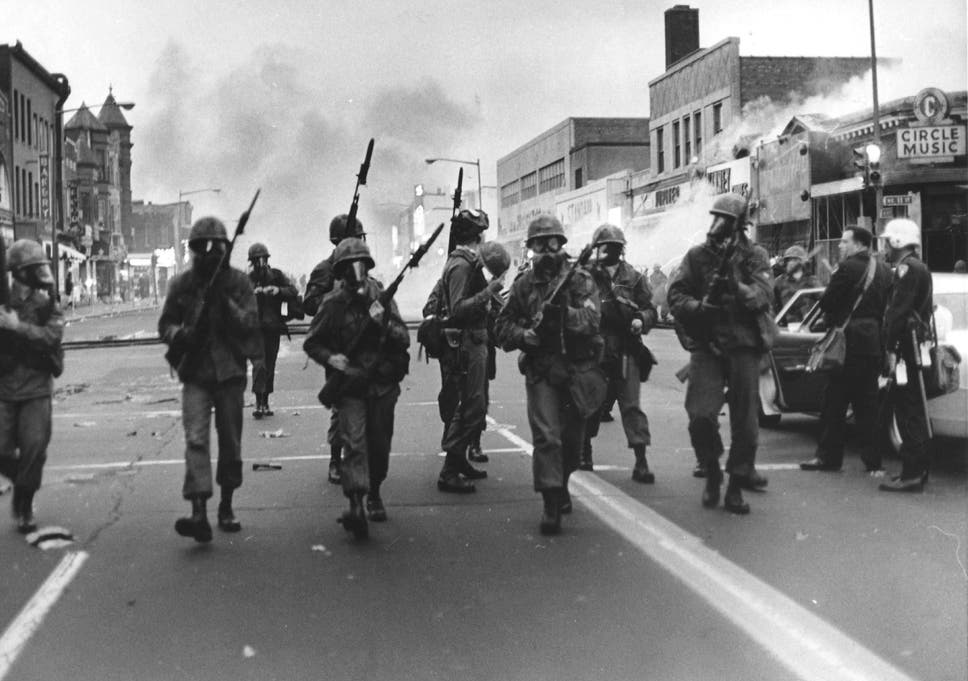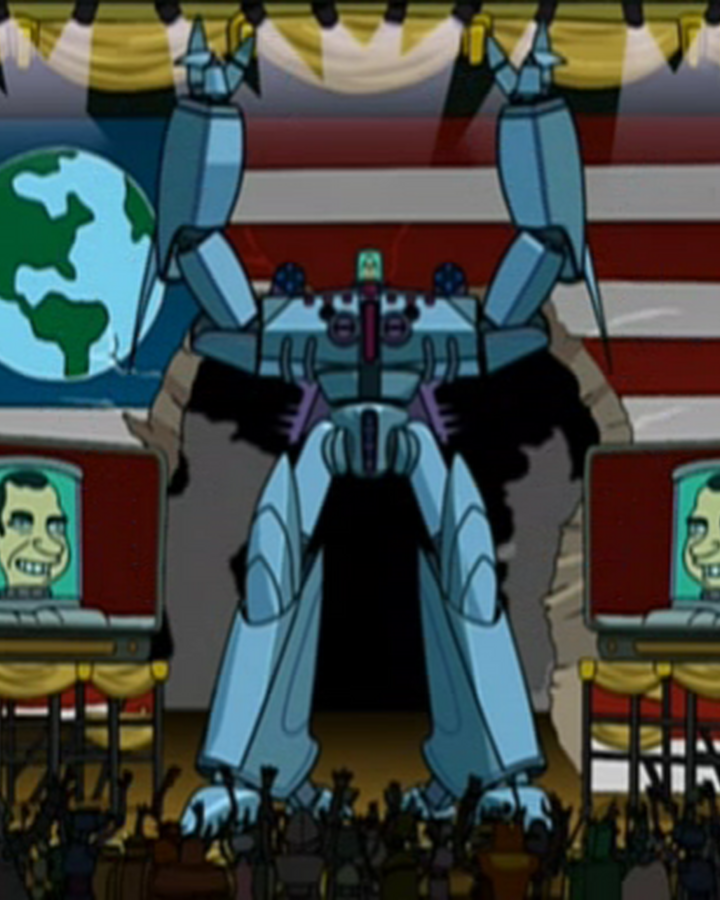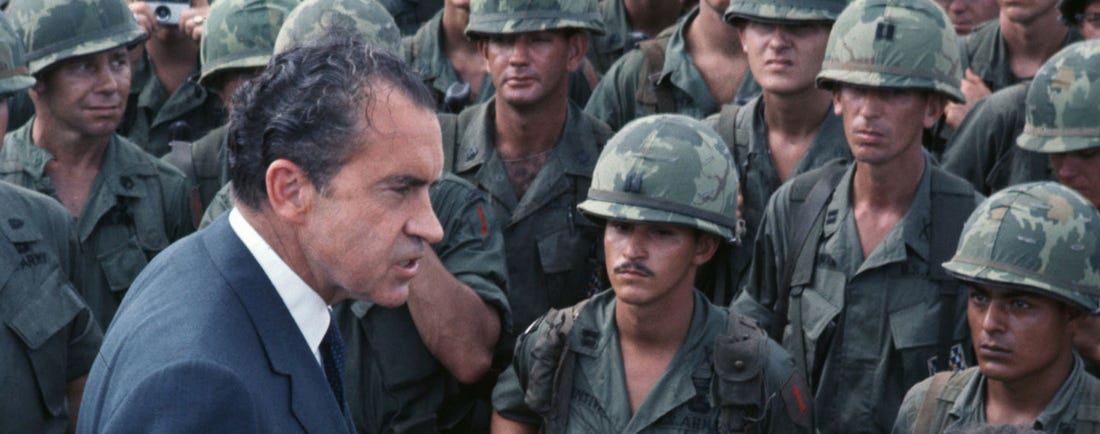LucaTheDevilCat
Banned
This is gonna be like Pax Atomica I can feel it
Surely there must be Ex-Unitists in hiding
Surely there must be Ex-Unitists in hiding
Last edited:
Would South Africa be a South America analogue here? I'd also imagine some sort of Operation Paperclip for technical experts.This is gonna be like Pax Atomica I can feel it
Surely there must be Ex-Unitists in hiding
I would imagine Oceania would be the 'South America' especially Australia as there are more far more British descended people down there whilst Murica has chosen the batshit crazy Afrikaner Nationalism which would put off any potentional British immigrants (IOTL The National Party stopped a post war flow of British/European immigrants because Afrikaners were their sole voter base). Add on top of this, Australia will loathe the Americans for their economic welfare.Would South Africa be a South America analogue here? I'd also imagine some sort of Operation Paperclip for technical experts.
That's true, but if you're a wanted war criminal, "Let's go live in the part of our cultural sphere still carrying a torch for the old days" is a bit conspicuous.I would imagine Oceania would be the 'South America' especially Australia as there are more far more British descended people down there whilst Murica has chosen the batshit crazy Afrikaner Nationalism which would put off any potentional British immigrants (IOTL The National Party stopped a post war flow of British/European immigrants because Afrikaners were their sole voter base). Add on top of this, Australia will loathe the Americans for their economic welfare.
True, but did that stop Juan Peron from opening up Argentina to fleeing Nazis? Bear in mind that Argentina had a large Italian and German population. Australia, New Zealand, South Africa (The English parts) and Rhodesia would be the perfect refuge if you're a Unitist Mengele or Eichmann (Joseph Mengelton and Eyeman perhaps?).That's true, but if you're a wanted war criminal, "Let's go live in the part of our cultural sphere still carrying a torch for the old days" is a bit conspicuous.
Is Rhodesia still a thing TTL? I can't rememberTrue, but did that stop Juan Peron from opening up Argentina to fleeing Nazis? Bear in mind that Argentina had a large Italian and German population. Australia, New Zealand, South Africa (The English parts) and Rhodesia would be the perfect refuge if you're a Unitist Mengele or Eichmann (Joseph Mengelton and Eyeman perhaps?).
It must be, the End Plan surely would help the whites stay in controlIs Rhodesia still a thing TTL? I can't remember
This is gonna be like Pax Atomica I can feel it
Surely there must be Ex-Unitists in hiding
Would South Africa be a South America analogue here? I'd also imagine some sort of Operation Paperclip for technical experts.
Is Rhodesia still a thing TTL? I can't remember
I don't think South Africa would want Rhodesia as it's full of English settlers that would tilt the electoral balance in favour of the United Party.Yes and no. On the one hand, the territory controlled by Rhodesia is still a white settler state. However, it's part of Germany's Mittelafrika, although I think I might have them hand it over to S. Africa because they want to reward their ally and lower their own burdens.
I don't think South Africa would want Rhodesia as it's full of English settlers that would tilt the electoral balance in favour of the United Party.
I also speak as a son of a South African, I really do not think the hostility from Afrikaners towards the English would take place. Yes there are historical rivalries but alienating a good chunk of the white minority simply because of their ancestry/language isn't really a smart idea but then it's your timeline so why am I complaing?



Let me guess: Tricky Dick nukes protesters.However, the methods he would use to do so would remain controversial for generations after he died....
Let me guess: Tricky Dick nukes protesters.





Is that...The OSS agents traced the serial numbers, which hadn't all been filed off yet, to a factory in Wuhan.
Aroo?!Chapter 50: "We're Playing Hardball:" Nixon's First Term
When Dick Nixon was sworn into office in January of 1969, he was a man with a lot on his plate. Crime was on the rise. The nation was horribly divided. The Indochina Crisis continued to rage on, and foreign friends and foes alike smelled weakness. It would take strong, decisive leadership to dig America out of this mess. Regardless of what one thinks of his methods, it can't be denied that Nixon put America's house back in order.
President Nixon visits the troops deployed in rural Cambodia (1969)
The first issue was the Indochina Crisis. Where Kennedy waffled, Nixon was firm to the point of harshness. Immediately after the inauguration ceremony, Nixon's first act as President was to get on the phone with James Westmoreland, Governor of Indochina, and have him finally declare the Territory to be in a formal state of insurrection. As soon as the declaration became formal, Nixon declared "We're playing hardball," and ordered the deployment of 12,000 infantrymen and military policemen, as well as 400 Sherman tanks, to Indochina. This supplemented the 3,000 soldiers that had been integrated into the Colonial Police Force for Indochina after the War. Hanoi, a particular hotspot of rebellion, was the first target. The troops fired tear gas and live ammunition at rioters in the Battle of Hanoi, which lasted from January 31st through to February 13th. The Army killed some 3,768 rioters, and wounded 2,200 more. Nonetheless, it achieved what Nixon wanted; a firm victory in Indochina. In February he deployed a further 10,000 troops, supplemented with gun boats and air support, to track down and eliminate Saloth Sar and his Khmer National Front. The movement had grown in the wake of the 4th of July Massacre, uniting the most extreme Khmer nationalists under his umbrella. Sar and his 2500 supporters were founded hiding out in a makeshift village in the jungle. The Army was ready to move in and arrest him, but were expecting over 200 casualties. Nixon was having none of it. In a move still controversial to this day, Nixon ordered the Air Force to firebomb the compound on April 12th. There were no survivors. Although some denounced Nixon's actions as illegal and immoral, the level of hatred most of the country felt for the KNF meant that Nixon's approval ratings got a nice 5 point bump. The Army in Cambodia then fanned out across the countryside on a witch hunt for Khmer nationalists, who had been the most violent group of rioters by far. The green and yellow banner of the Khmer Empire was made an illegal hate symbol, and the Army burned every single one they could find. With the incredible weight of Uncle Sam bearing down, most of the moderates in Cambodia gave up, especially after the fire bombing made the depths of American anger vividly apparent. However, some 30,000 extremists gathered in Krong Chaktomuk for one final, epic showdown on June 10th. They burned the Vietnamese quarter of the city before sufficient troops had arrived, although some suggest that this was partly because the American forces didn't care about the Vietnamese. However, there's not much in the way of concrete evidence to support that assertion. On June 11th, the riot continued, and was met with 50 tanks, 6,000 soldiers, and 4,000 policemen. The nationalists either charged, or opened fire if they had firearms. The tanks opened up. The result was as predictable as it was bloody. 12,000 rioters died, 4,000 more were critically injured, and another 3,364 sustained moderate or minor industries. 15 new Boeing Tomahawk Helicopters loaded with troops landed behind those who attempted to flee, and forced them to surrender. Every single remaining rioter was arrested, and charged with 4,100 counts of murder (the number of Vietnamese who died the day before), 5,000 counts of arson, treason, espionage, sabotage, rioting, rebellion, and 23,000 counts of possession of a hate symbol. Most of those arrested were given prison sentences of varying length. However, some 600, the most unrepentant murderers, were sentenced to death by public hanging. Nixon sent a message to Cambodia. It was heard loud and clear. The Crisis was over in Cambodia in time for the next 4th of July parade in Krong Chaktomuk. In an act of collective punishment against Cambodia, the city was renamed Lafayetteville by an executive order. Given the French origin of the name, it was a double slap in the face, but the continued presence of the military in Cambodia meant people wisely decided not to protest.

Operation Liberty's Fury: KNF HQ firebombed
In Vietnam, the rebellion was far less vicious, and thus received a less visceral American reaction. However, one incident did shake the nation to its core. On October 11th, 1969, the Army captured the compound belonging to a small band of rebels calling themselves the North Vietnamese Army for Liberation, who in reality hadn't done much other than cause a small ruckus in the country. However, what was notable about this event were the weapons found inside the compound; they were of Chinese origin. Nixon ordered the OSS to seize the compound from the Army, and no media was allowed inside due to a "ongoing chemical leak." The OSS agents traced the serial numbers, which hadn't all been filed off yet, to a factory in Wuhan. Agents were sent to infiltrate the factory and extract their record orders; the weapons had been ordered by the Chinese Army. Nixon ordered further investigation, but knew the truth deep down. In 1968, China had elected Yen Chia-Kan, a nationalist who wanted to expand China's influence in Asia and leave America's shadow. Part of that involved weakening the hold of America's colonial empire in the region. The OSS confirmed what Nixon's paranoia had made his suspect from the start; the Chinese had sent those weapons to try and make America's life in Indochina more difficult. They believed that if the Crisis ground on longer than three years, America would rather quit than wage a full war. In the ensuing power vacuum, the Chinese could ensure friendly parties took power in the region. This operation had been rather secretive in China, as public feeling on trying to push out the US was far from unanimous, and some believed it would only make things worse for China. Nixon fumed in private, and began planning revenge. First though, he had to finish dealing with Indochina.
Laos was fairly easy to pacify, having been the least rebellious of the Indochinese territories. The rest of 1969 was spent pacifying the remaining rebel groups and rioters, which were beginning to lose traction anyway as the people of Indochina began to shift their support away from the various nationalist organizations and radical language rights groups. A decent majority had never been huge fans, and the large minority began to change their tune when they saw that A.) The radicals hadn't achieved anything and B.) That Washington was prepared to bear down hard on Indochina. On Presidents Day 1970, President Nixon was able to declare total victory in Indochina. His approval ratings hovered at 80% throughout the whole year, and the Democrats gained enough ground in the midterm election to have a veto proof majority in the Senate.
With Indochina done and dusted, the OSS released its findings about Chinese support of the Vietnamese rebels before Congress in March. The betrayal caused shockwaves in the international community. The Chinese issued a feeble denial, but it was transparent it an obvious lie. Nixon cancelled upcoming trade talks with the Chinese, but that seemed to be all. However, this wasn't so. In the following months, there were a series of strange accidents in Chinese military bases near the border with Indochina. Then in August, the masterminds behind the weapons scheme started dying in strange ways. President Yen rightly suspected sabotage, but had no concrete proof, and had lost a great deal of credibility abroad over the scandal. Shortly after the last ringleader died, President Yen received a gift from Nixon. It came in a fine box, and appeared to be a reconciliation gift. Inside was the head of a dragon like those used in Chinese New Year's parades, and a note from Nixon:
Dear President Yen,
I hope you are well. These past months have been trying ones for the relationship between our two nations. However, I know we can overcome those past difficulties. I admit, I don't know much about Chinese culture, but I think the symbolism of this gift is universal. Take its meaning to heart.
Sincerely,
Dick
President Yen seemed to concede that he had overstepped, and had only been saved from harsher treatment by the fact that the US and China were massive trade partners. However, this would not be his last duel with Dick Nixon. The rivalry between these two men would shape much of the 1970's.
Also on the foreign side of things, Nixon had to try and navigate an increasingly complicated relationship with India, and began making plans for the collapse of the UOCS, which was struggling internally, although one wouldn't know it without access to classified information. However, there weren't many dramatic events in his first term on the foreign affairs front.
Domestically, Nixon and LBJ were some busy fellas. LBJ was a former Army Lieutenant and still held the armed forces close to his heart. The military saw several consecutive years of budget increases, which were poured into R&D. Speaking of R&D, on July 4th, 1969, in a mission that had been timed to fall on America's birthday, the United States of America planted the first men on the moon. Those men, Neil Armstrong and Jack Hardy, came home to a heroes welcome, and the image of them planting the Star Spangled Banner on the moon became a national icon. Even the Germans were begrudgingly awed. Although Nixon had little to do with NASA beyond supporting the agency he inherited, the landing lent credibility to his administration. Nixon used that credibility to launch a committee on government waste, with the goal of "eliminating every penny of superfluous spending." In reality, the committee was a bit overhyped, but they did implement legitimate cost saving measures that gave money back to the taxpayers. There was also a sinister side to this initiative; Nixon wanted the Executive Branch as streamlined as possible so he could more effectively control it. Regardless of intentions, the program was a moderate success. In 1970, Nixon passed the Restoration of Order Act, which authorized the sale of military surplus to the police, and is credited with beginning the militarization of police in America, which would last for decades. Given the chaos of '68 and the Indochina Crisis, the bill was fairly popular, but concerns were already present. Nixon also created the Environmental Protection Agency as a compromise with Republicans, which was another broadly applauded piece of legislation.
By 1972, Nixon had become the most unlikely savior in American history. This party-hopping, balding man with the jowls of a basset hound and some unfortunate issues with paranoia and control had seemingly saved the country from insurrection and stood up to foreign nations who abused the nation's trust. However, his second term would bring its own challenges....

President Yen of China

Neil Armstrong salutes the American flag on the Moon.

LAPD officers in military gear purchased under the ROA, during the 1975 riots.